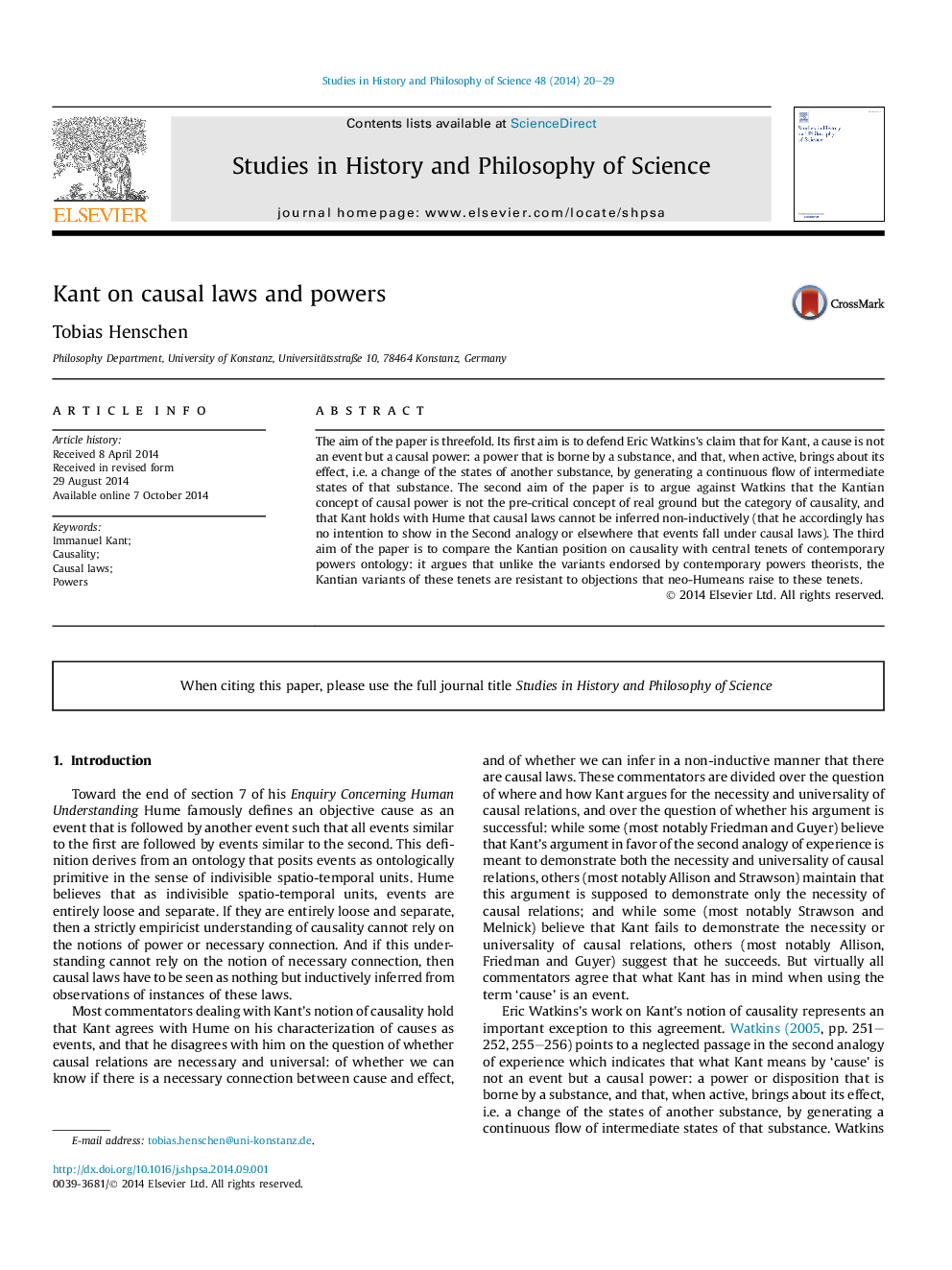| Article ID | Journal | Published Year | Pages | File Type |
|---|---|---|---|---|
| 1160852 | Studies in History and Philosophy of Science Part A | 2014 | 10 Pages |
•Kant's category of causality is interpreted as pure and a priori concept of power.•The second analogy is shown to establish this concept as transcendental condition.•Kant is shown to agree with Hume on the inductivity of inferences of causal laws.•Kant's position on causality is argued to be resistant to neo-Humean objections.
The aim of the paper is threefold. Its first aim is to defend Eric Watkins's claim that for Kant, a cause is not an event but a causal power: a power that is borne by a substance, and that, when active, brings about its effect, i.e. a change of the states of another substance, by generating a continuous flow of intermediate states of that substance. The second aim of the paper is to argue against Watkins that the Kantian concept of causal power is not the pre-critical concept of real ground but the category of causality, and that Kant holds with Hume that causal laws cannot be inferred non-inductively (that he accordingly has no intention to show in the Second analogy or elsewhere that events fall under causal laws). The third aim of the paper is to compare the Kantian position on causality with central tenets of contemporary powers ontology: it argues that unlike the variants endorsed by contemporary powers theorists, the Kantian variants of these tenets are resistant to objections that neo-Humeans raise to these tenets.
